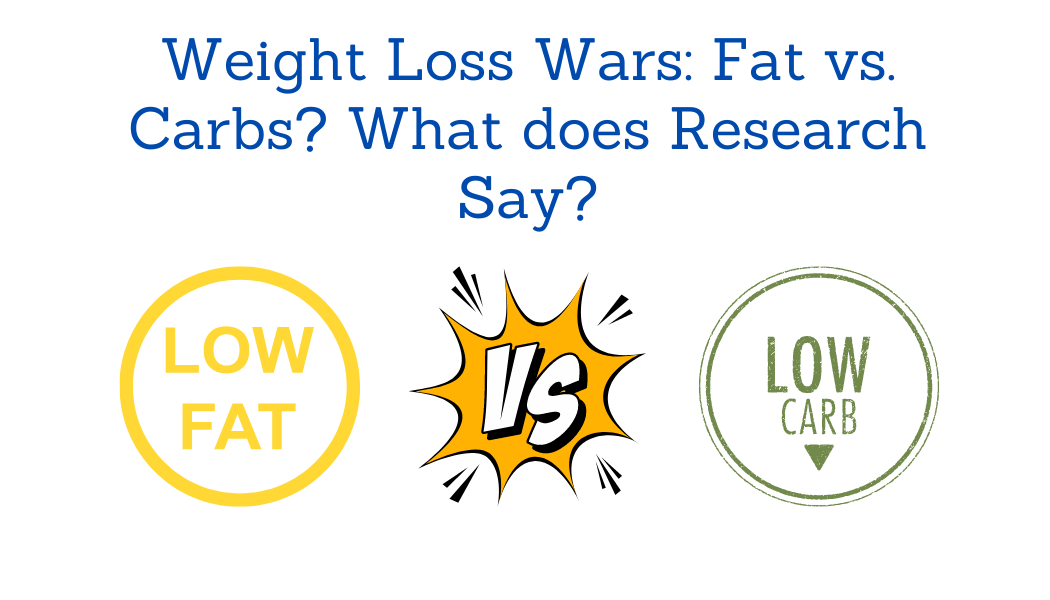For years, the debate has raged on: low-fat vs. low-carb diets for weight loss. This seemingly simple question has complex answers, and new research suggests the focus may be misplaced entirely.
Traditional Low-Fat Approach Shows Success
Studies like the Look-AHEAD trial have demonstrated the effectiveness of low-fat diets for weight loss in people with type 2 diabetes. This approach emphasizes energy reduction through a diet lower in fat content. Similar strategies have been used with success in trials aimed at preventing type 2 diabetes altogether.
The Rise of Low-Carb Diets
However, recent trials like DiRECT challenge the low-fat dogma. This study achieved significant weight loss in participants with type 2 diabetes using an energy-deficit diet, but the specific macronutrient ratios (carbs, fat, protein) were less important. This finding is further supported by umbrella reviews indicating weight management in type 2 diabetes doesn’t hinge on a specific macronutrient profile as long as calorie restriction is achieved.
Beyond Diabetes: Weight Loss for Everyone
The picture becomes even more interesting when we look beyond type 2 diabetes. Studies in the general population (without diabetes) show mixed results, with some favoring low-fat and others favoring low-carb approaches. However, when all the evidence is considered, both low-fat and low-carb diets (with varying protein content) appear effective for weight loss.
The Adherence Challenge
The real hurdle may not be the specific diet itself, but rather sticking with it long-term. While low-fat diets compared favorably to usual eating habits in terms of weight loss, low-carb diets often led to slightly greater weight loss in research settings. However, the difference was statistically significant but quite small (around 1.15 kg), raising questions about its practical impact.
Calorie Restriction: The Key Ingredient
A key limitation in many studies is the inconsistent application of calorie restriction. Some low-carb trials allowed participants to eat ad libitum (as much as desired), while others included calorie reduction. Future research needs to address these design flaws. The current evidence suggests that focusing on minor differences in macronutrient ratios may not be the most effective strategy for weight loss.
Protein: The Missing Piece for Weight Maintenance?
While carbohydrate and fat content have been extensively studied, protein intake has received less attention. Interestingly, higher protein intake after weight loss has been linked to significantly lower weight regain, likely due to increased feelings of fullness and improved energy efficiency.
Finding the Right Maintenance Strategy
Maintaining weight loss is notoriously difficult. One study compared different protein intake and glycemic index (GI) combinations with a control diet in individuals who had already lost a significant amount of weight. The results suggest that a combination of moderate protein intake and a moderate reduction in GI may be helpful for preventing weight regain in the short term (6 months). However, long-term data on weight maintenance strategies remains scarce.
The Takeaway: Focus on Calories and Find a Diet You Can Live With
The new research suggests that for weight loss, the specific balance of macronutrients (carbs, fat, protein) may not be as crucial as previously thought. The key seems to be creating a calorie deficit through dietary changes. Finding a diet that you can adhere to long-term is essential for success. While low-fat and low-carb approaches both have their merits, the best diet is the one you can stick with.
Moving Forward: Research Needs
Further research is needed to explore the best dietary strategies and other factors that can help people maintain weight loss over the long term. Understanding the role of protein intake and its impact on weight management deserves further investigation.

